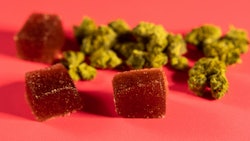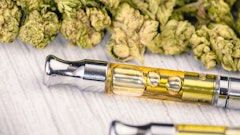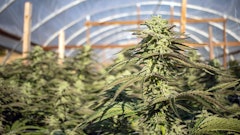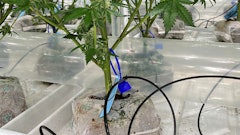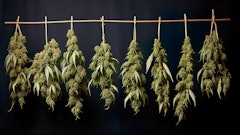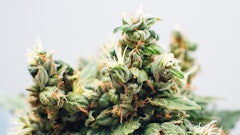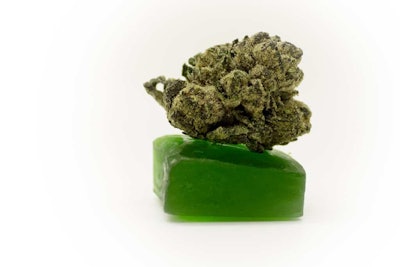
As numerous states have banned delta-8 THC, industry members have debated whether the psychoactive, intoxicating cannabinoid delta-8 THC is a federally controlled substance when derived from hemp.
In a Nov. 2 blog post, cannabis and hemp attorney Rod Kight of Kight Law, who has been closely following and commenting on delta-8, highlighted that the U.S. Drug Enforcement Administration (DEA) has clarified in 2021 that hemp-derived delta-8 is not a federally controlled substance.
Kight points out in the blog post that in a June virtual town hall meeting, the Florida Department of Agriculture and Consumer Services’ (FDACS) cannabis director, Holly Bell, asked the DEA’s chief of intergovernmental affairs, Sean Mitchell, if delta-8 is federally legal.
Mitchell responded: “Sure, and I also want to expand beyond delta-8. There’s delta-8, there’s delta-10, there’s all kind of different cannabinoids associated with Cannabis sativa L. that are kind of out there and making the rounds. So, what I want to say—and I’ll be very deliberate and clear—at this time, I repeat again, at this time—per the [2018] Farm Bill, the only thing that is a controlled substance is delta-9 THC greater than 0.3% based on a dry-weight basis.”
Another communication from the DEA that Kight cited in the blog post is a September letter written by Dr. Terrence L. Boos, Ph.D., chief of the DEA’s Drug & Chemical Evaluation Section in its Diversion Control Division. In that letter, addressed to Donna C. Yeatman, R.Ph., executive director of Alabama’s Board of Pharmacy, Boos states that delta-8 THC can be naturally occurring in the cannabis plant or “synthetically produced from non-cannabis materials.” Boos also explains that the Controlled Substances Act (CSA) doesn’t control tetrahydrocannabinols in hemp.
Boos writes: “Accordingly, cannabinoids extracted from the cannabis plant that have a D9-THC concentration of not more than 0.3 percent on a dry weight basis meet the definition of ‘hemp’ and thus are not controlled under the CSA.”
Hemp Grower recently spoke with Graham Farrar, co-founder, president, board member and chief cannabis officer of vertically integrated high-THC cannabis company Glass House Brands. Farrar is also CEO of SoCal Hemp, a Mojave Desert hemp cannabinoid joint venture between Glass House Brands and natural resources provider Cadiz; that company grew about 50 acres of CBD hemp this year.
“I think the fact that [the DEA] came out and said … delta-9 THC can't be higher than 0.3%—it doesn't say anything else—it doesn't say ‘delta-8,’ it doesn't say ‘THC' and leave it broad—it says ‘delta-9 THC’—and so, I think that clarification, at least at the federal level, is really nice to have,” Farrar said.
He continued: “Many states have taken a total-THC approach, if you want to use that language, which is THC is THC, and they don’t care about the isomers. And that’s fine—states get to do what they want in this. But it is nice, at least, to know that the federal government's not out there saying, ‘Hey, this is illegal.’ So, I think it’s great to have that clarity because then once you have clarity, you can figure out to do with it.”
In another recent interview, Hemp Grower spoke with August Battles, CEO and co-owner of Milwaukee, Wisc., hemp product manufacturer Vance Global. The company started with CBD flower cigarettes and now also sells CBD hemp flower (not rolled), delta-8 flower and cigarettes, and delta-8 gummies, using hemp sourced from Wisconsin and Oregon. Delta-8 is currently the company’s main focus, Battles said.
Following the DEA’s recent messaging around delta-8, Battles said he anticipates the delta-8 market will open up more. “We’re realizing you don't want to throw all your eggs in one basket in this industry because it could be like CBD, where it’s hot one minute and then not the next,” he said. “So, you kind of have to jump into every single aspect [of] it.”













